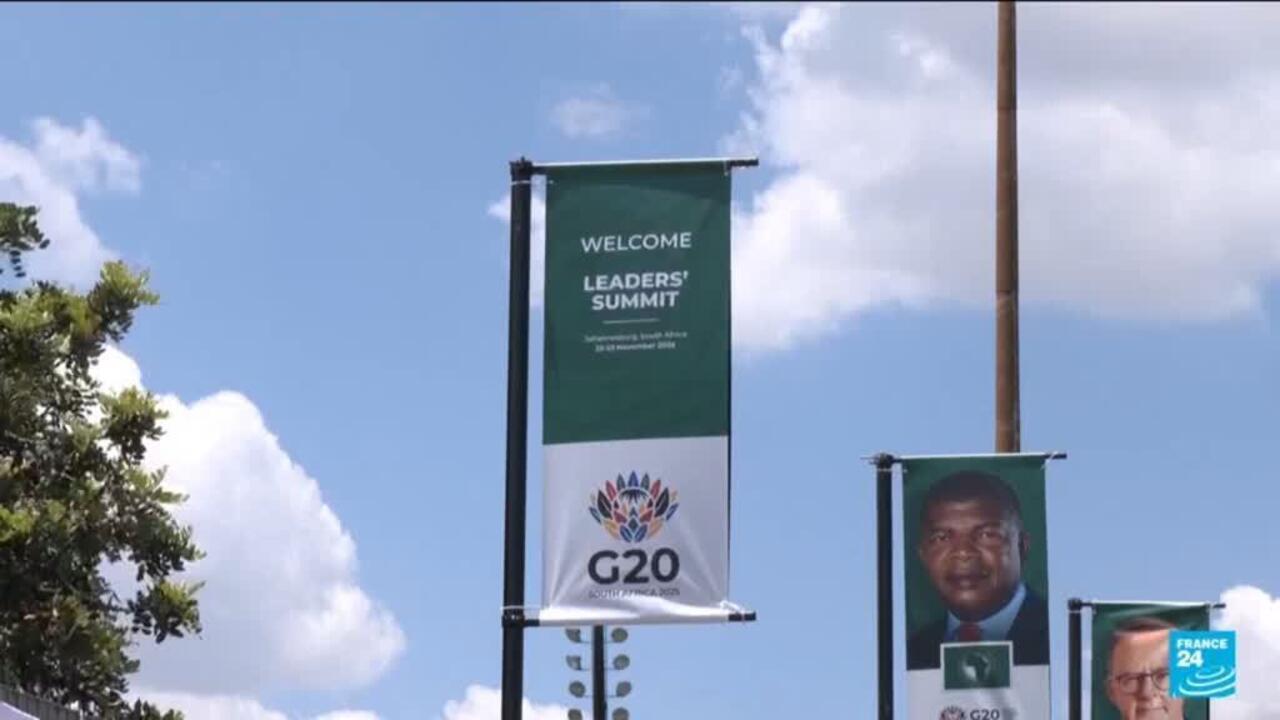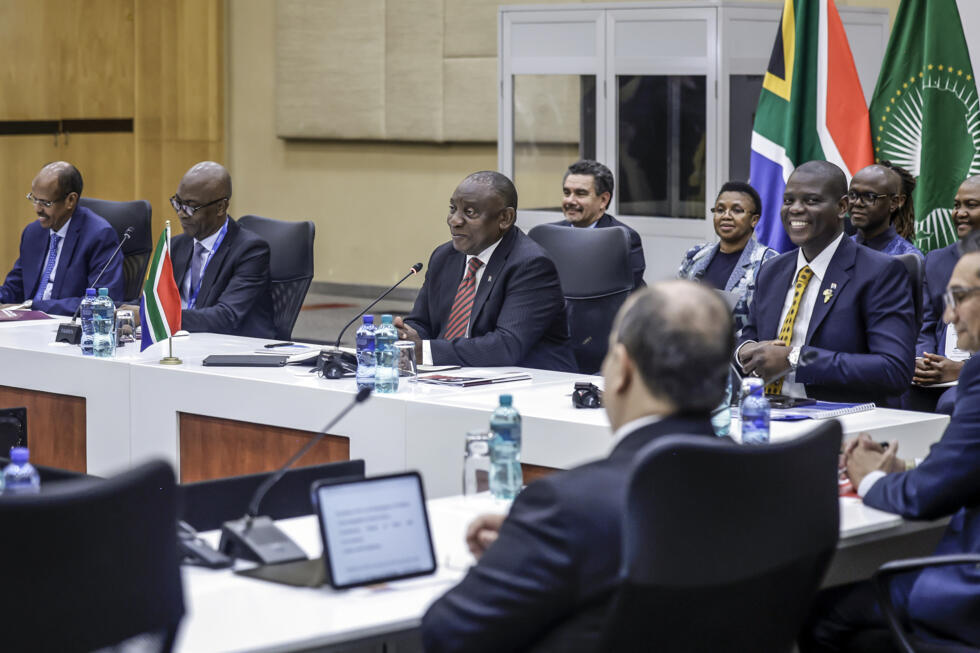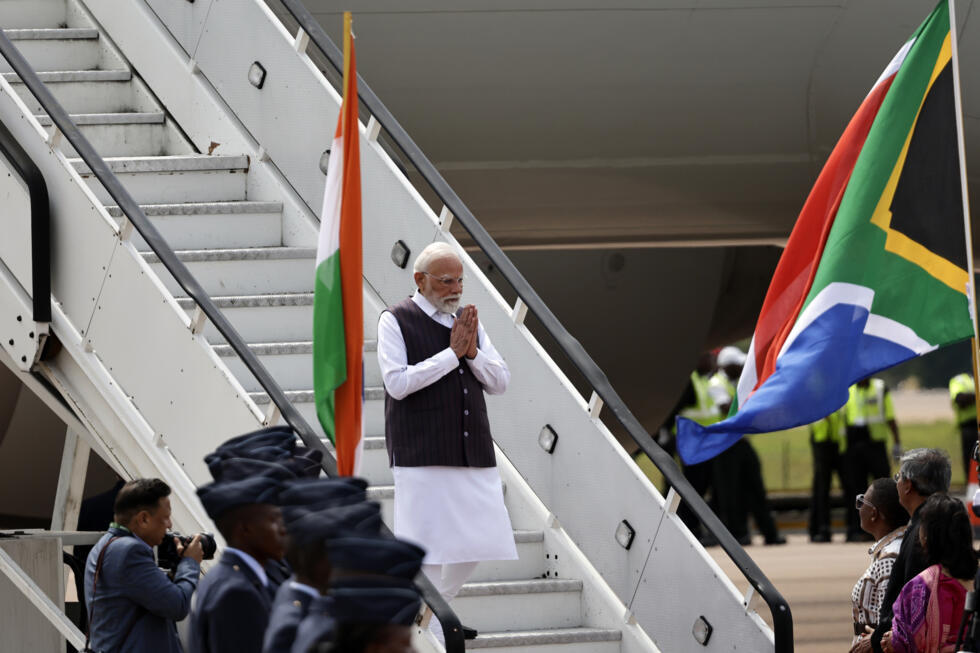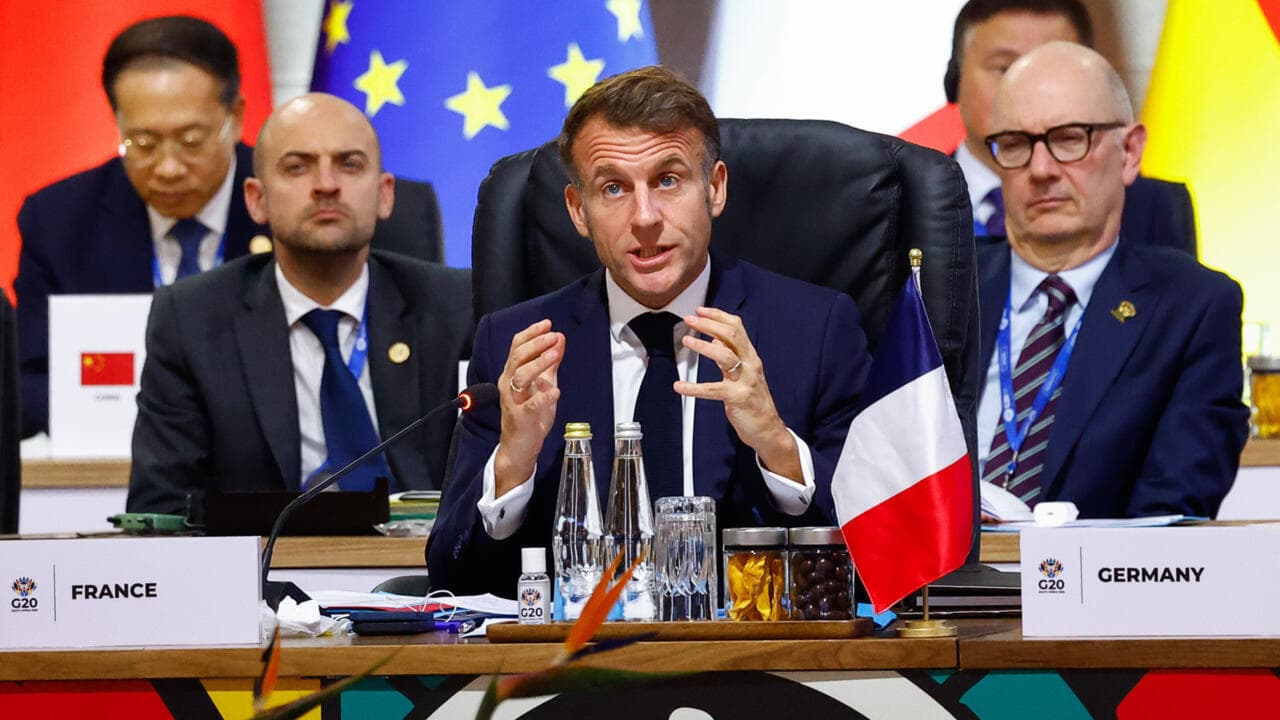A US-European rift over the future of Ukraine was set to overshadow a G20 summit starting in South Africa on Saturday further marked by Trump's pointed absence.
The Johannesburg gathering is being attended by a host of world leaders including French President Emmanuel Macron, Indian Prime Minister Narendra Modi, Chinese Premier Li Qiang, Brazilian President Luiz Inacio Lula da Silva and Turkish President Recep Tayyip Erdogan.
But Trump is boycotting, with his government saying South Africa's priorities – notably boosting global cooperation on trade and climate action – run counter to US policy.
The US president nevertheless loomed large at the event, the first summit of the group of major economies to be held in Africa, after producing a surprise unilateral US plan to end the war in Ukraine largely in line with Russia's goals.
Following an urgent call with Ukrainian President Volodymyr Zelensky, Macron, German Chancellor Friedrich Merz and UK Prime Minister Keir Starmer stressed that any such plan needed the"joint support and consensus of European partners and NATO allies".
The leaders of Britain, France and Germany met Saturday on the sidelines of a G20 summit in South Africa to discuss a joint response to a unilateral US plan for Ukraine, the French presidency said, ahead of a wider meeting on the same topic that would include other European leaders.
Macron said that the G20 of the world's largest economies was"struggling to resolve" current international crises and was "at risk" of decline due to a lack of collective mobilisation around "a few priorities".

Climate impasse
Another issue dogging the G20 summit was a deadlock at COP30 climate negotiations taking place in Brazil.
Friday was meant to be the last day of those talks, which had gone on for nearly two weeks. But they threatened to drag on because petro-states were accused of resisting any reference to a fossil fuel phaseout in the final text.

Despite the headwinds, host South Africa was projecting optimism that it would get backing for its G20 aims to reduce economic inequalities, shrink debt for low-income countries, secure help for clean-energy transitions and establish a critical minerals pact.
"As South Africa, we are hoping that we will have the leaders' declaration adopted, which will set a new and continuing agenda for the world, particularly the G20," President Cyril Ramaphosa said late Friday.
Political negotiators from the participating countries finalised on Friday a final draft joint text for the leaders to agree on, sources said. They were not authorised to divulge the draft's contents.
It was uncertain the document would be a traditional summit statement, given the US boycott and a warning from Washington that no declaration in the name of the G20 should be issued.

Ramaphosa, who has bristled at the US absence and the Trump government's unfounded allegations of a"white genocide" in South Africa, has been joined by other leaders in stressing that the G20 was an important platform for multilateral cooperation.
"Multilateralism is our best, maybe our only defence against disruption, violence and chaos. And South Africa put multilateralism to work," Antonio Costa, European Council president, told a pre-summit press conference.
The US boycott echoes Trump's decision not to send an official delegation to the COP30.
Washington has said it would send its charge d'affaires from its embassy at the end of the Johannesburg meeting only for a handover ceremony, as the United States will host next year's G20 summit at a golf club owned by Trump in Florida.
The G20 is a grouping of 19 countries plus the European Union and the African Union. It represents 85 percent of global GDP and around two-thirds of the world's population.

